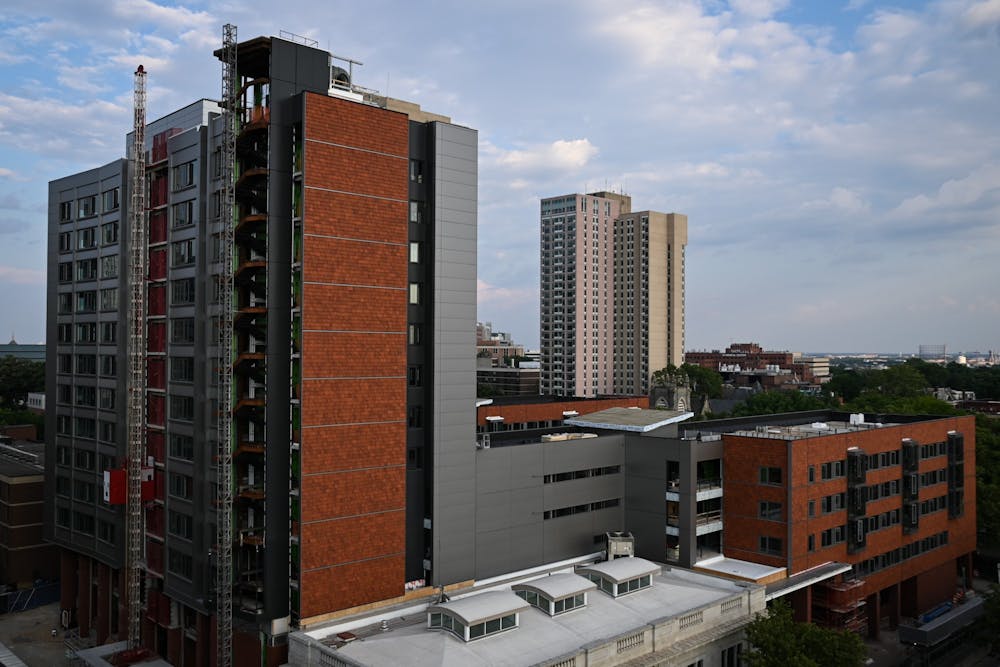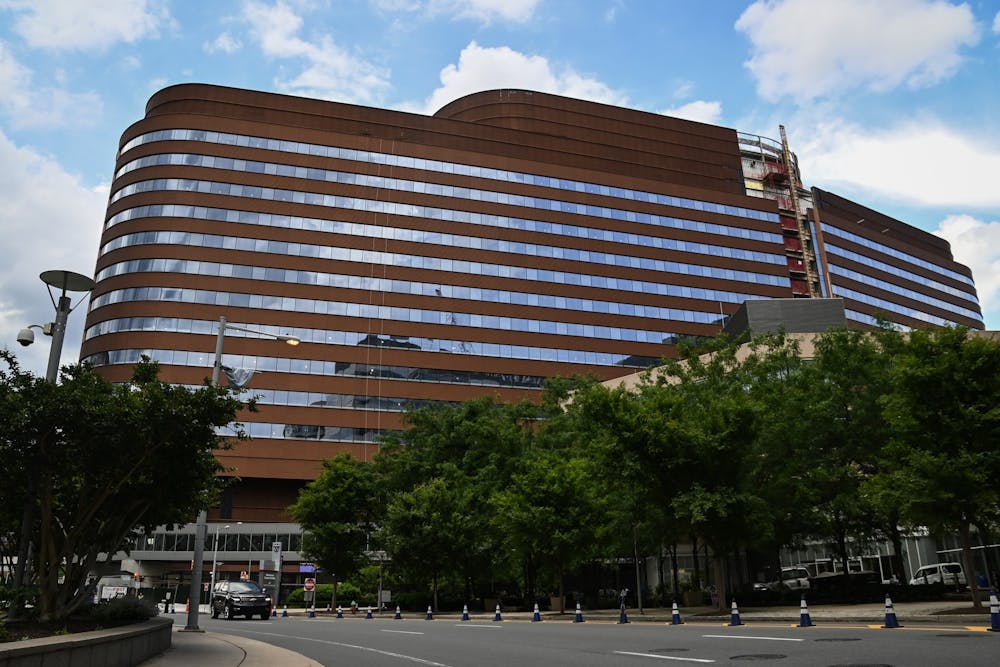
Campus construction has delayed $50 million in work after a seven-week pause on many projects due to COVID-19, Facilities and Real Estate Services said in a campus construction updates meeting with trustees on June 11.
In the meeting, the committee said there are currently 50 construction projects on campus. Many of these construction projects, including the renovation of the first floor of College Hall and the Wharton Academic Research Building, have been delayed, while New College House West remains on schedule following a partial shutdown of construction.
On March 20, Pennsylvania Governor Tom Wolf mandated the shutdown of all non-life sustaining construction projects. On May 1, construction was allowed to restart with specific safety rules outlined by Philadelphia Mayor Jim Kenney.
“We have a contingency that’s built into our large projects, so that’s for this type of thing — for unforeseen conditions — and these are not super significant compared to the budget of the buildings,” FRES Executive Director of Design and Construction Mike Dausch said.
College Hall, the former home of the Undergraduate Office of Admissions, is undergoing renovations to create spaces for Penn First Plus, a center for first-generation, low-income college students, and the Paideia Program, which is a new program for undergraduates focused on civic discourse. Although the renovation was supposed to be finished by the start of the fall 2020 semester, the completion date has been delayed to September 2020, Dausch said.
Completion of the construction of the Wharton Academic Research Building will also be delayed from September 2020 to October 2020. The building will not be ready for a full move-in until the start of the spring semester in 2021. Now that the project has resumed, there are currently 100 workers on site out of 450 total workers across campus.

Penn Medicine's Pavilion is expected to be completed by July 2021.
As required by the state, each campus job site has at least one “pandemic safety officer” who is responsible for enforcing site-specific infection control plans for their given construction project.
New College House West, the largest campus project with 175 daily workers, was only partially closed during the shutdown, and is still on schedule for student occupancy in August 2021, Dausch said.
NCHW received a limited waiver to continue weather-proofing the building, but all other work on the building was temporarily put on pause from March to April. The project, which has a budget of $169.5 million, faced additional costs, such as hiring a nurse to screen workers at the start of each shift, Dausch said.
While it was mandated by the state to have a nurse present during the shutdown period, Dausch said there continues to be a nurse on the job site even now that the requirement has been lifted.
“I think that has contributed to the success we’ve had there,” Dausch said. “To date, we have not had a worker test positive for COVID-19 on that job site.”
NCHW happens to be a residential space that is relatively well-designed for students’ potential social distancing needs, University Architect Mark Kocent said.
“The good thing about this design, similar to the design we had for the Lauder College House, is that every bedroom is a private room, so it does allow for the distancing between students,” Kocent said. “Obviously, it’s going to be a challenge in any building, but these buildings are laid out quite well even though when we were designing the building, COVID-19 was not a concern.”
Kocent said none of the designs for current construction projects will be changed in light of recent coronavirus-related safety guidelines, as each building is created for long-term use beyond the pandemic.
Categorized as a "life-sustaining" operation by Wolf's administration, construction on Penn Medicine’s Pavilion was expedited to have 120 rooms made patient-ready in April — 15 months before the planned occupancy date — in case more hospital space was needed due to the increasing number of COVID-19 cases flooding local hospitals in late March. Although none of the beds in the Pavilion were needed, Dausch said the space could become important in case there is another spike in hospitalization case numbers in Philadelphia.
The Pavilion in its entirety is not expected to be completed until July 2021, as originally scheduled.
Correction: A previous version of this headline incorrectly stated that COVID-19 cost Penn $50 million, while in fact these costs were delayed from the previous quarter and were not additional costs. A previous version of this article incorrectly attributed a quotation to the Facilities and Campus Planning Committee, while in fact it should have been attributed to Facilities and Real Estate Services. The DP regrets these errors.
The Daily Pennsylvanian is an independent, student-run newspaper. Please consider making a donation to support the coverage that shapes the University. Your generosity ensures a future of strong journalism at Penn.
Donate







